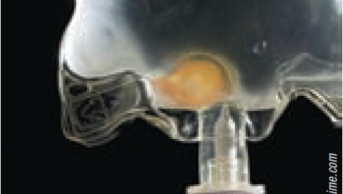
This content was published in 2010. We do not recommend that you take any clinical decisions based on this information without first ensuring you have checked the latest guidance.
A: The first consideration should always be to check the patient’s anticonvulsant regimen for potential drug-induced depression. The patient could benefit from changing the anticonvulsant to another medicine with a more favourable effect on mood rather than adding an antidepressant.
Although the risk of seizures with most antidepressants is low, a risk still exists and patients should be made aware of this when treatment is prescribed. The risk of seizures rises with increasing antidepressant doses.
Selective serotonin reuptake inhibitors (SSRIs) are considered the first-line antidepressant option for patients with epilepsy. Published data do not support the recommendation of a specific SSRI, although fluoxetine is not the best choice because of its long half-life, a potentially greater incidence of seizures and a higher likelihood of drug interactions. Citalopram or sertraline could be considered better options due to their lower potential for interactions with anticonvulsants.
Moclobemide is a good alternative because it has minimal proconvulsive effects but, due to limited evidence, it should be reserved as a second choice.
Tricyclic antidepressants (TCAs) should be used cautiously for patients with epilepsy and reserved for patients who respond poorly to or are intolerant of other antidepressants. Where a TCA is needed, doxepin is the drug of choice.
Clinicians should be aware of the possibility of interactions between antidepressants and anticonvulsants and should monitor carefully patients with epilepsy who are prescribed antidepressants.
Introducing the antidepressant gradually, starting with a low dose and not exceeding the maximum recommended doses may reduce the risk of seizures occurring.
If seizures do occur, or if the frequency of seizures increases, the antidepressant should be discontinued.
This FAQ is taken from a “Medicines Q&A” produced by UK Medicines Information. The full document, including references, is available from www.nelm.nhs.uk (prepared 22 September 2010).

